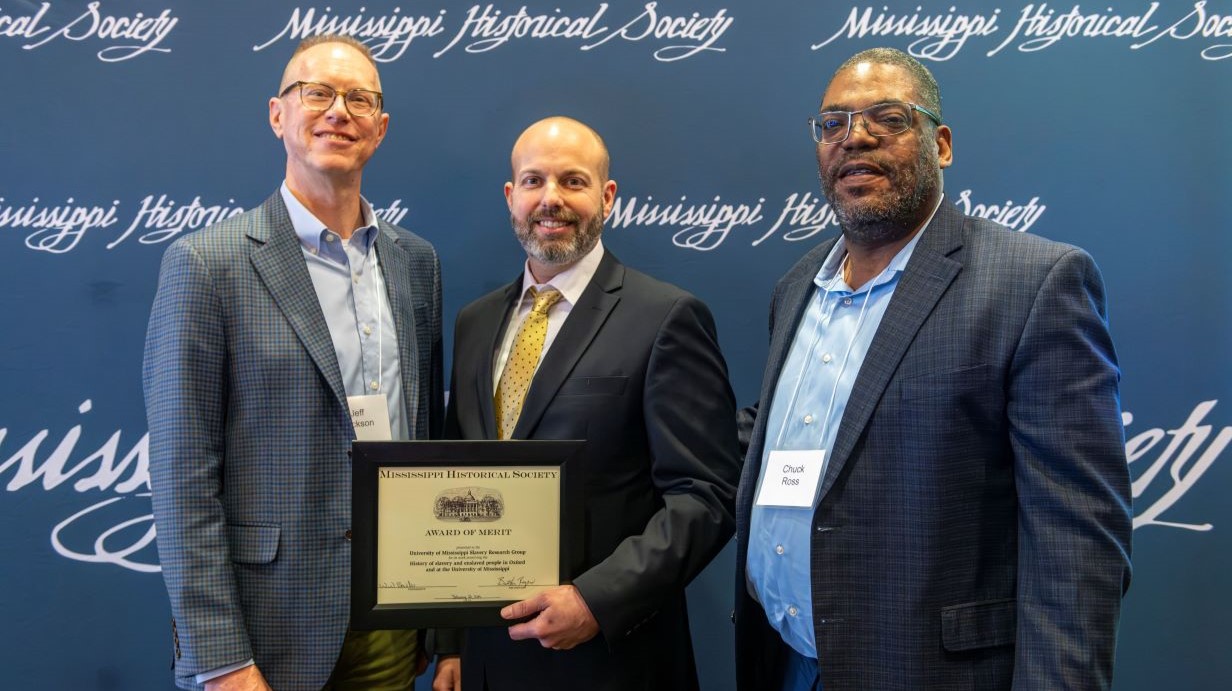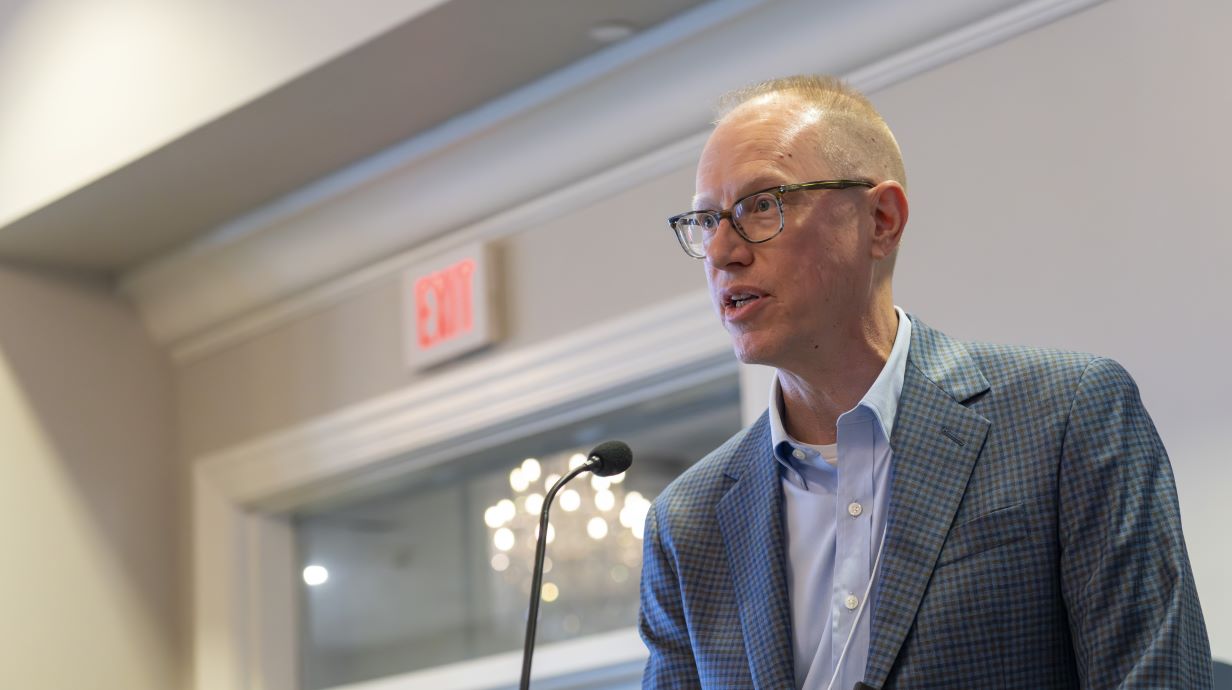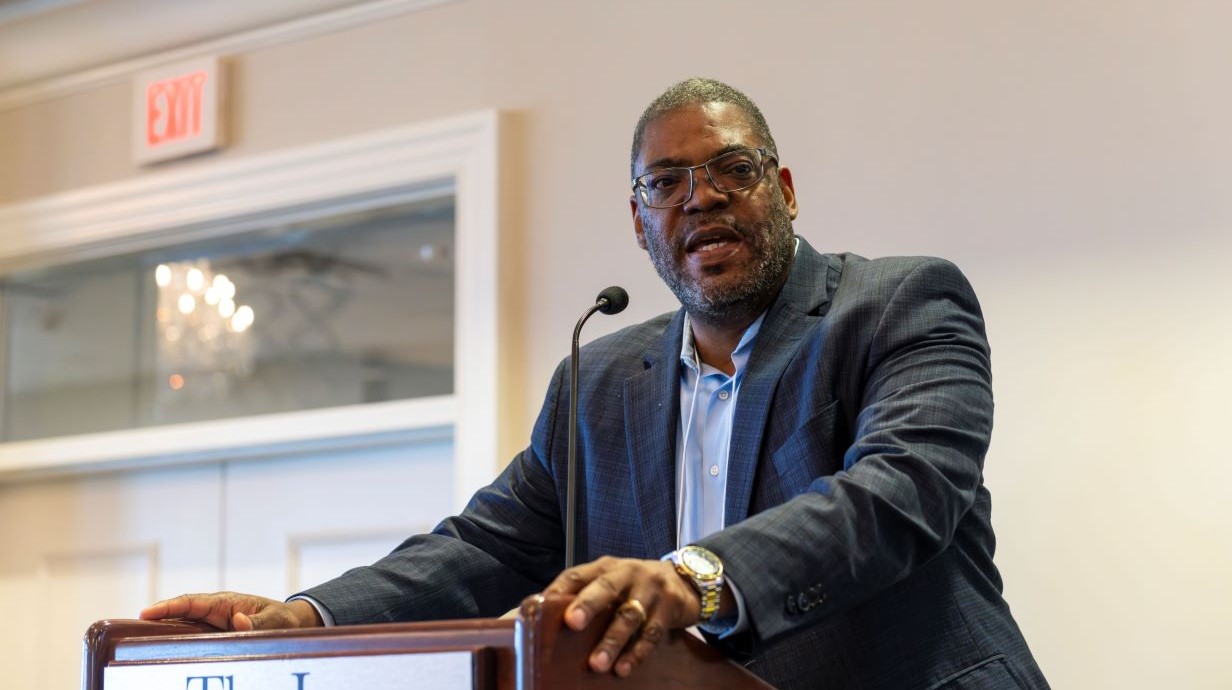Mississippi Historical Society Recognizes Slavery Research Group
Group recognized for cross-disciplinary approach to discovering history of enslaved people

OXFORD, Miss. – The Mississippi Historical Society has honored the University of Mississippi Slavery Research Group for its work in telling the stories of enslaved people across the South.
The Mississippi Historical Society recognized the UM Slavery Research Group among 15 others that are working to preserve Mississippi history with "Awards of Merit" at its annual meeting Friday (Feb. 23) at The Inn at Ole Miss.
Charles K. Ross, professor of history and African American studies, and Jeffrey Jackson, chair and professor of the Department of Sociology and Anthropology, created the interdisciplinary research group in 2013. Their goal was to discover the history of enslaved people at the university.
"We thought there might be a few people interested," Jackson said. "But what we had was an outpouring of people from many departments across campus."
Over the last decade, that group has grown to include 58 faculty members and students from 17 academic departments. Through historical records, the group has identified the names of more than 34 (and counting) enslaved people out of the hundreds who worked on campus between 1846 and 1863 or on properties that the university has since acquired.

Jeffrey Jackson. Photo by Srijita Chattopadhyay/ Ole Miss Digital Imaging Services
As of December 2023, the group has also escorted more than 10,000 students and visitors on the UM Slavery Tour, a guided look at the history of slavery at the university, Ross said.
University archeologists have also begun work uncovering artifacts that could shed light on the life of enslaved people living on the estate of Robert Sheegog, which is now called Rowan Oak.
"Jeff and I may have been facilitators, but this has been a group effort, and this is certainly a group award," Ross said. "Having a diversity of discipline in our group has been one of our greatest strengths. Different disciplines bring different expertise to the question."
The history of slaves and their contributions to society were largely ignored for more than 150 years following emancipation, but the history of America is incomplete without including the story of slavery, Ross said.
"We're at a point in our society where history is a discipline that is becoming very political," he said. "That troubles me.
"It may not always be rosy, but if we decide as a society that we just simply don't want to examine, critique, discuss and teach it, we're doing a disservice not only to ourselves but to the individuals that come after us."
Slavery has been the subject of historical investigation for a long time, including at Ole Miss, but previous generations of researchers often found it difficult to do this work, Jackson said.
"In some ways, we are the first generation of scholars to be able to do this," he said. "Generations before us were often prevented or did not have had the support to do this work, even if they wanted to.

Charles Ross. Photo by Srijita Chattopadhyay/ Ole Miss Digital Imaging Services
"Now is the time, and this is something that can bring people together. We're going to be able to tell a more honest and complete story of this campus to future generations of students and visitors."
Uncovering the stories of enslaved people also helps fill in the gaps of lineage for people who want to know who their ancestors are, Jackson said.
"There are families out there looking for their ancestors," he said. "Their names are in our archives, and people are looking for them but will never find them if we don't put in the work to make their stories known.
"This is an opportunity to share that knowledge and these findings with the public. There are a lot of things that have divided us, but exploring the truth of our nation is something that can bring us together."
The society also recognized the ongoing Behind the Big House project for its work to interpret the history of slavery. Jodi Skipper, associate professor of anthropology and Southern studies, and Carolyn Freiwald, associate professor of anthropology, were among those who accepted the "Excellence in History" award on behalf of the project.
The Mississippi Historical Society is a nonprofit organization that works with the Mississippi Department of Archives and History to promote state history.
By
Clara Turnage
Campus
Office, Department or Center
Published
February 25, 2024
